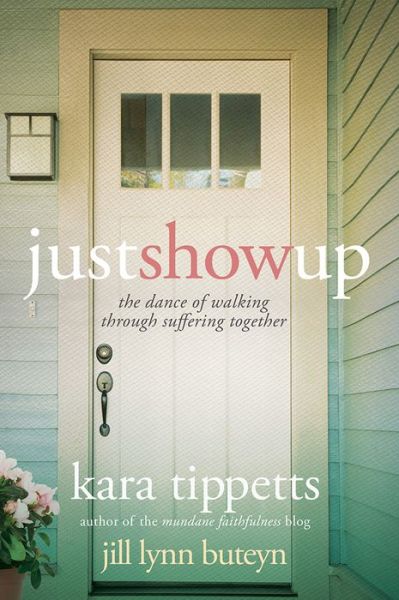“And here on this mountain, God will banish
the pall of doom hanging over all peoples,
The shadow of doom darkening all nations.
Yes, he’ll banish death forever.
And God will wipe the tears from every face.”
Marmee died almost 2 months ago, and I’m still tucking away things to remember to tell her, checking my calendar for when we can pop over for a visit, and thinking about her as I mentally make our holiday plans. A friend I hadn’t seen in a while recently asked how I was doing in my grief, and I tried to explain that losing my 95-year-old grandmother is such a beautiful thing compared to my parents’ dying in a violent car accident when I was 20 or my dear friend dying of breast cancer before she was 40, leaving her 4 babies behind. I tried to explain that the beauty of sitting at Marmee’s side, holding her hand and reading out of the Psalms to her as she took her last breath, cushions my sadness in such a way that my grief almost doesn’t feel sad. After all, since Marmee died, a nephew of a close friend left the house headed to work and died in a car accident 2 miles from home, devastating his adoring family. And another friend’s brother has just died of aggressive cancer after celebrating 30 years of marriage to his beloved bride—a godly, joyful man taken too soon from this world. I can’t help but praise God for Marmee’s long life and all the time we had with her; I have absolutely no complaints, no why’s I’m crying out to Jesus to answer. Dying peacefully at 95 with family at your bedside is the best death can be, really.
Yet, it’s still death, and it’s still contrary to the original design of this world. God created this world to be eternal and for his children to be eternal. Death and illness entered this world with sin, and since then, humankind has suffered the devastation of that brokenness. As Christians, we hang onto God’s promise that some day, he will redeem this world and make everything new; he will make our hurts and pains and sickness come undone, he will wipe away every last tear. Indeed, we grieve with hope.
But we grieve. There is no question about it—we definitely grieve. We even grieve the quiet death of my beloved Marmee, who lived a full, generous, loving life. Though we have no regrets and we know we will see her again, her death reminds us that we were never designed to take a last breath, we were never designed to be on our death bed surrounded by family, we were never designed to part ways and say goodbye.
So it hurts. The images on my television of the elderly people in Texas being rescued from nursing homes and assisted living homes bring me to my knees because all I can think of is Marmee. As I pray for these sweet souls, I thank God for the courageous heroes who saved these folks from the perils of Harvey because if it were my grandmother, I would have needed a hero, too. I stumble over my words when I encounter a grandmother out shopping who smiles at my children because she reminds me of Marmee and what I’ve lost and what my babies have lost. I cry when I see a Razzleberry Pie in the frozen food section of Safeway, because Marmee kept one in the freezer, just in case. I have that grief filter right now that relates everything to Marmee and the pain of losing her.
I’m sure that some folks don’t understand why I’m still wrestling with this grief, why I can’t celebrate Marmee’s life and her union with Christ and move on. And I get that because there are tragedies all around us. Marmee’s death was not tragic or unjust. All we have to do is look at social media or turn on the television, and we see tragedy stretching from our community across the world. Though there is a sweetness in my pain because there was no tragedy, the grief still stings. But the truth is, I am actually being very intentional about pressing into my grief.
I’m allowing myself to feel every pang of that sting for two reasons. The first is that the love Marmee and I shared warrants that sting—she was my biggest constant, my fiercest protector, my loudest champion. She was my mother and my father and my grandparent for 20 years. She did every single thing she could imagine to love me well, without exception. She was my model of sacrifice and generosity. That kind of love deserves every tear that threatens to spill, every lump in my throat that tries to choke me, every catch of my breath that turns to a gasp. Our love warrants my sobs in church when we sing about going Home or my crying into my pillow in the middle of the day when I remember that I won’t be visiting her Friday morning or telling her about my children’s latest victories. Deep love harvests deep grief, and I don’t want to miss experiencing a single moment; after all, it’s what I have left of her in this world.
The second reason I allow myself to feel that sting of grief instead of shoving it down is that it invites opportunity for being comforted by Christ—the deeper our pain, the deeper the truth of the hope he offers, and the intimacy that results from that is nothing short of transformative. The most beautiful, redemptive seasons of my life have been when my heart has been the most broken and Jesus has gently shown up to remind me not only of his love for me and his compassion, but of his promises to eventually wipe my tears away forever and make my grief come undone. Without acknowledging the pain and torment, we cannot comprehend the grace of his hope, joy, or peace.
So I grieve away. I grieve not knowing what my mourning will look like one day to the next, if I will be able to get through the day without tears or if I will be able to comfort a friend without falling to pieces. But I grieve knowing that God will meet me in my dark place with the promise of his presence now and forever, the promise of his restoration and our hurts being turned to joy.
We all have those hurts where God wants to meet us, where he stands, ready to comfort and ready to embrace us. Some are easier to acknowledge than others; some we don’t feel that we have permission to grieve or maybe the world has forgotten and we are afraid of being judged. But Jesus has not forgotten—he sees those invisible hurts and longs to hear your heart, even if you’ve run out of friends to listen. He longs to give you a taste of the permanent, forever comfort to come.
What are the areas of your life that are begging you to grieve them? What griefs do the world not understand but your heart is broken over? How can you engage that grief and invite God’s comforting Spirit to meet you in that broken place?







